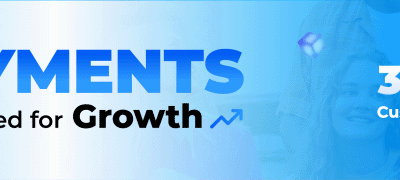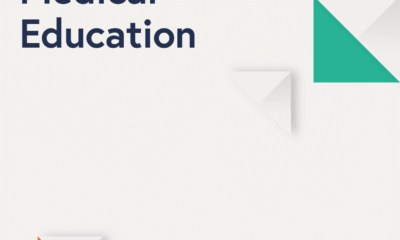Ethics & Policy
AI leaders urge ethics, data & trust to unlock value

As organisations across Australia and New Zealand (ANZ) mark AI Appreciation Day, industry leaders are reflecting on the extraordinary progress of artificial intelligence, as well as the pressing challenges and responsibilities that lie ahead. While AI promises transformative benefits for business, security, and society, these experts stress that its success hinges on the quality of data, robust governance, and an unwavering prioritisation of ethics and human empowerment.
Wade Weirman, Principal Data Lead at Rackspace Technology ANZ, underscores that the real engine behind artificial intelligence is not the algorithms or technologies themselves, but the data that feeds them. “AI only works when data is trusted, accessible, and embedded across the organisation,” Weirman says. He warns that without strong data leadership, AI deployments risk misfiring or even generating biased results that could erode public trust. “Getting this right isn’t optional; it’s essential for long-term scalability and societal trust.”
For David Lloyd, Chief AI Officer at Dayforce, the spotlight is now on HR teams to steer their organisations through the current wave of AI-driven change. Lloyd believes HR has a unique opportunity to lead business transformation, emphasising the adoption of AI agents that automate complex, high-volume tasks and foster a more adaptable workforce. “HR can become the driving force behind ethical and trustworthy AI adoption, shaping how organisations align technology with values.”
From a technology infrastructure perspective, Justin Hurst, Chief Technology Officer APAC at Extreme Networks, advises businesses to approach AI with careful planning rather than hasty adoption. Hurst suggests that teams should be given room to experiment and learn, while training in data literacy and network automation must become strategic priorities. “The future of network engineering is not about replacing people with AI, but about enabling them to work smarter and more strategically,” he notes.
The environmental impact of AI is also under scrutiny. Simon Wistow, Co-Founder of Fastly, points to the growing significance of energy efficiency in AI development. With nearly half of respondents in Fastly’s recent survey indicating a preference for energy-efficient AI models if costs were tied to consumption, Wistow calls for transparency and optimisation of infrastructure. “We all need to start thinking about AI and the internet as something physical – because it is. It uses real resources, generates emissions, and has real-world consequences,” he observes.
Matthew Hardman, APAC Chief Technology Officer at Hitachi Vantara, reinforces the importance of enterprise-wide data governance and infrastructure. His company’s survey found that 43% of successful AI projects in Australia attributed their success to strong governance and project management, with 35% highlighting high-quality data. “By addressing these challenges and responding to increased scrutiny from boards and regulators, businesses can unlock AI’s transformative potential,” Hardman says.
Cybersecurity emerges as both a risk and opportunity in today’s AI landscape. Les Williamson, Regional Director ANZ at Check Point Software Technologies, points to a recent surge in AI-powered cyberattacks and urges organisations to embed security measures from the design stage. “A well-governed AI can revolutionise cyber security, streamline auditing processes, and ensure regulatory compliance across industries,” he says.
Patrick Harding, Chief Product Architect at Ping Identity, and Gareth Cox of Exabeam both highlight the evolving nature of identity management in an AI-driven world – a landscape complicated by autonomous agents and deepfake technologies. Harding stresses, “Building and maintaining trust in every digital interaction is more essential than ever,” urging organisations to rethink traditional security and identity models.
On the workforce front, Shaun Leisegang of Tecala and Pieter Danhieux of Secure Code Warrior see AI as an enabler rather than a replacement, shifting the focus from automation to human augmentation. “AI is not a replacement for human potential, but rather a partner in unlocking it,” says Leisegang. Danhieux echoes this sentiment, emphasising the necessity for human expertise in navigating AI’s vulnerabilities and maximising its productivity gains.
Across industries, the message is clear: to unlock the vast opportunities presented by AI, organisations in Australia and New Zealand must balance rapid innovation with responsibility, sustainability, and a relentless focus on both data quality and human talent. As companies integrate AI deeper into their operations, leadership, governance, and transparency will be key to realising not just smarter machines, but smarter organisations able to thrive in an increasingly AI-powered world.
Ethics & Policy
Your browser is not supported
jacksonville.com wants to ensure the best experience for all of our readers, so we built our site to take advantage of the latest technology, making it faster and easier to use.
Unfortunately, your browser is not supported. Please download one of these browsers for the best experience on jacksonville.com
Ethics & Policy
Navigating the Investment Implications of Regulatory and Reputational Challenges

The generative AI industry, once hailed as a beacon of innovation, now faces a storm of regulatory scrutiny and reputational crises. For investors, the stakes are clear: companies like Meta, Microsoft, and Google must navigate a rapidly evolving legal landscape while balancing ethical obligations with profitability. This article examines how regulatory and reputational risks are reshaping the investment calculus for AI leaders, with a focus on Meta’s struggles and the contrasting strategies of its competitors.
The Regulatory Tightrope
In 2025, generative AI platforms are under unprecedented scrutiny. A Senate investigation led by Senator Josh Hawley (R-MO) is probing whether Meta’s AI systems enabled harmful interactions with children, including romantic roleplay and the dissemination of false medical advice [1]. Leaked internal documents revealed policies inconsistent with Meta’s public commitments, prompting lawmakers to demand transparency and documentation [1]. These revelations have not only intensified federal oversight but also spurred state-level action. Illinois and Nevada, for instance, have introduced legislation to regulate AI mental health bots, signaling a broader trend toward localized governance [2].
At the federal level, bipartisan efforts are gaining momentum. The AI Accountability and Personal Data Protection Act, introduced by Hawley and Richard Blumenthal, seeks to establish legal remedies for data misuse, while the No Adversarial AI Act aims to block foreign AI models from U.S. agencies [1]. These measures reflect a growing consensus that AI governance must extend beyond corporate responsibility to include enforceable legal frameworks.
Reputational Fallout and Legal Precedents
Meta’s reputational risks have been compounded by high-profile lawsuits. A Florida case involving a 14-year-old’s suicide linked to a Character.AI bot survived a First Amendment dismissal attempt, setting a dangerous precedent for liability [2]. Critics argue that AI chatbots failing to disclose their non-human nature or providing false medical advice erode public trust [4]. Consumer advocacy groups and digital rights organizations have amplified these concerns, pressuring companies to adopt ethical AI frameworks [3].
Meanwhile, Microsoft and Google have faced their own challenges. A bipartisan coalition of U.S. attorneys general has warned tech giants to address AI risks to children, with Meta’s alleged failures drawing particular criticism [1]. Google’s decision to shift data-labeling work away from Scale AI—after Meta’s $14.8 billion investment in the firm—highlights the competitive and regulatory tensions reshaping the industry [2]. Microsoft and OpenAI are also reevaluating their ties to Scale AI, underscoring the fragility of partnerships in a climate of mistrust [4].
Financial Implications: Capital Expenditures and Stock Volatility
Meta’s aggressive AI strategy has come at a cost. The company’s projected 2025 AI infrastructure spending ($66–72 billion) far exceeds Microsoft’s $80 billion capex for data centers, yet Meta’s stock has shown greater volatility, dropping -2.1% amid regulatory pressures [2]. Antitrust lawsuits threatening to force the divestiture of Instagram or WhatsApp add further uncertainty [5]. In contrast, Microsoft’s stock has demonstrated stability, with a lower average post-earnings drawdown of 8% compared to Meta’s 12% [2]. Microsoft’s focus on enterprise AI and Azure’s record $75 billion annual revenue has insulated it from some of the reputational turbulence facing Meta [1].
Despite Meta’s 78% earnings forecast hit rate (vs. Microsoft’s 69%), its high-risk, high-reward approach raises questions about long-term sustainability. For instance, Meta’s Reality Labs segment, which includes AI-driven projects, has driven 38% year-over-year EPS growth but also contributed to reorganizations and attrition [6]. Investors must weigh these factors against Microsoft’s diversified business model and strategic investments, such as its $13 billion stake in OpenAI [3].
Investment Implications: Balancing Innovation and Compliance
The AI industry’s future hinges on companies’ ability to align innovation with ethical and legal standards. For Meta, the path forward requires addressing Senate inquiries, mitigating reputational damage, and proving that its AI systems prioritize user safety over engagement metrics [4]. Competitors like Microsoft and Google may gain an edge by adopting transparent governance models and leveraging state-level regulatory trends to their advantage [1].
Conclusion
As AI ethics and legal risks dominate headlines, investors must scrutinize how companies navigate these challenges. Meta’s struggles highlight the perils of prioritizing growth over governance, while Microsoft’s stability underscores the value of a measured, enterprise-focused approach. For now, the AI landscape remains a high-stakes game of regulatory chess, where the winners will be those who balance innovation with accountability.
Source:
[1] Meta Platforms Inc.’s AI Policies Under Investigation and [https://www.mintz.com/insights-center/viewpoints/54731/2025-08-22-meta-platforms-incs-ai-policies-under-investigation-and]
[2] The AI Therapy Bubble: How Regulation and Reputational [https://www.ainvest.com/news/ai-therapy-bubble-regulation-reputational-risks-reshaping-mental-health-tech-market-2508/]
[3] Breaking down generative AI risks and mitigation options [https://www.wolterskluwer.com/en/expert-insights/breaking-down-generative-ai-risks-mitigation-options]
[4] Experts React to Reuters Reports on Meta’s AI Chatbot [https://techpolicy.press/experts-react-to-reuters-reports-on-metas-ai-chatbot-policies]
[5] AI Compliance: Meaning, Regulations, Challenges [https://www.scrut.io/post/ai-compliance]
[6] Meta’s AI Ambitions: Talent Volatility and Strategic Reorganization—A Double-Edged Sword for Investors [https://www.ainvest.com/news/meta-ai-ambitions-talent-volatility-strategic-reorganization-double-edged-sword-investors-2508/]
Ethics & Policy
7 Life-Changing Books Recommended by Catriona Wallace | Books

7 Life-Changing Books Recommended by Catriona Wallace (Picture Credit – Instagram)
Some books ignite something immediate. Others change you quietly, over time. For Dr Catriona Wallace—tech entrepreneur, AI ethics advocate, and one of Australia’s most influential business leaders, books are more than just ideas on paper. They are frameworks, provocations, and spiritual companions. Her reading list offers not just guidance for navigating leadership and technology, but for embracing identity, power, and inner purpose. These seven titles reflect a mind shaped by disruption, ethics, feminism, and wisdom. They are not trend-driven. They are transformational.
1. Lean In by Sheryl Sandberg
A landmark in feminist career literature, Lean In challenges women to pursue their ambitions while confronting the structural and cultural forces that hold them back. Sandberg uses her own journey at Facebook and Google to dissect gender inequality in leadership. The book is part memoir, part manifesto, and remains divisive for valid reasons. But Wallace cites it as essential for starting difficult conversations about workplace dynamics and ambition. It asks, simply: what would you do if you weren’t afraid?

2. Women and Power: A Manifesto by Mary Beard
In this sharp, incisive book, classicist Mary Beard examines the historical exclusion of women from power and public voice. From Medusa to misogynistic memes, Beard exposes how narratives built around silence and suppression persist today. The writing is fiery, brief, and packed with centuries of insight. Wallace recommends it for its ability to distil complex ideas into cultural clarity. It’s a reminder that power is not just a seat at the table; it is a script we are still rewriting.
3. The World of Numbers by Adam Spencer
A celebration of mathematics as storytelling, this book blends fun facts, puzzles, and history to reveal how numbers shape everything from music to human behaviour. Spencer, a comedian and maths lover, makes the subject inviting rather than intimidating. Wallace credits this book with sparking new curiosity about logic, data, and systems thinking. It’s not just for mathematicians. It’s for anyone ready to appreciate the beauty of patterns and the thinking habits that come with them.
4. Small Giants by Bo Burlingham
This book is a love letter to companies that chose to be great instead of big. Burlingham profiles fourteen businesses that opted for soul, purpose, and community over rapid growth. For Wallace, who has founded multiple mission-driven companies, this book affirms that success is not about scale. It is about integrity. Each story is a blueprint for building something meaningful, resilient, and values-aligned. It is a must-read for anyone tired of hustle culture and hungry for depth.
5. The Misogynist Factory by Alison Phipps
A searing academic work on the production of misogyny in modern institutions. Phipps connects the dots between sexual violence, neoliberalism, and resistance movements in a way that is as rigorous as it is radical. Wallace recommends this book for its clear-eyed confrontation of how systemic inequality persists beneath performative gestures. It equips readers with language to understand how power moves, morphs, and resists change. This is not light reading. It is a necessary reading for anyone seeking to challenge structural harm.
6. Tribes by Seth Godin
Godin’s central idea is simple but powerful: people don’t follow brands, they follow leaders who connect with them emotionally and intellectually. This book blends marketing, leadership, and human psychology to show how movements begin. Wallace highlights ‘Tribes’ as essential reading for purpose-driven founders and changemakers. It reminds readers that real influence is built on trust and shared values. Whether you’re leading a company or a cause, it’s a call to speak boldly and build your own tribe.
7. The Tibetan Book of Living and Dying by Sogyal Rinpoche
Equal parts spiritual guide and philosophical reflection, this book weaves Tibetan Buddhist teachings with Western perspectives on mortality, grief, and rebirth. Wallace turns to it not only for personal growth but also for grounding ethical decision-making in a deeper sense of purpose. It’s a book that speaks to those navigating endings—personal, spiritual, or professional and offers a path toward clarity and compassion. It does not offer answers. It offers presence, which is often far more powerful.

The books that shape us are often those that disrupt us first. Catriona Wallace’s list is not filled with comfort reads. It’s made of hard questions, structural truths, and radical shifts in thinking. From feminist manifestos to Buddhist reflections, from purpose-led business to systemic critique, this bookshelf is a mirror of her own leadership—decisive, curious, and grounded in values. If you’re building something bold or seeking language for change, there’s a good chance one of these books will meet you where you are and carry you further than you expected.
-
Tools & Platforms3 weeks ago
Building Trust in Military AI Starts with Opening the Black Box – War on the Rocks
-

 Business2 days ago
Business2 days agoThe Guardian view on Trump and the Fed: independence is no substitute for accountability | Editorial
-

 Ethics & Policy1 month ago
Ethics & Policy1 month agoSDAIA Supports Saudi Arabia’s Leadership in Shaping Global AI Ethics, Policy, and Research – وكالة الأنباء السعودية
-

 Events & Conferences3 months ago
Events & Conferences3 months agoJourney to 1000 models: Scaling Instagram’s recommendation system
-

 Jobs & Careers2 months ago
Jobs & Careers2 months agoMumbai-based Perplexity Alternative Has 60k+ Users Without Funding
-

 Funding & Business2 months ago
Funding & Business2 months agoKayak and Expedia race to build AI travel agents that turn social posts into itineraries
-

 Education2 months ago
Education2 months agoVEX Robotics launches AI-powered classroom robotics system
-

 Podcasts & Talks2 months ago
Podcasts & Talks2 months agoHappy 4th of July! 🎆 Made with Veo 3 in Gemini
-

 Podcasts & Talks2 months ago
Podcasts & Talks2 months agoOpenAI 🤝 @teamganassi
-

 Mergers & Acquisitions2 months ago
Mergers & Acquisitions2 months agoDonald Trump suggests US government review subsidies to Elon Musk’s companies



















